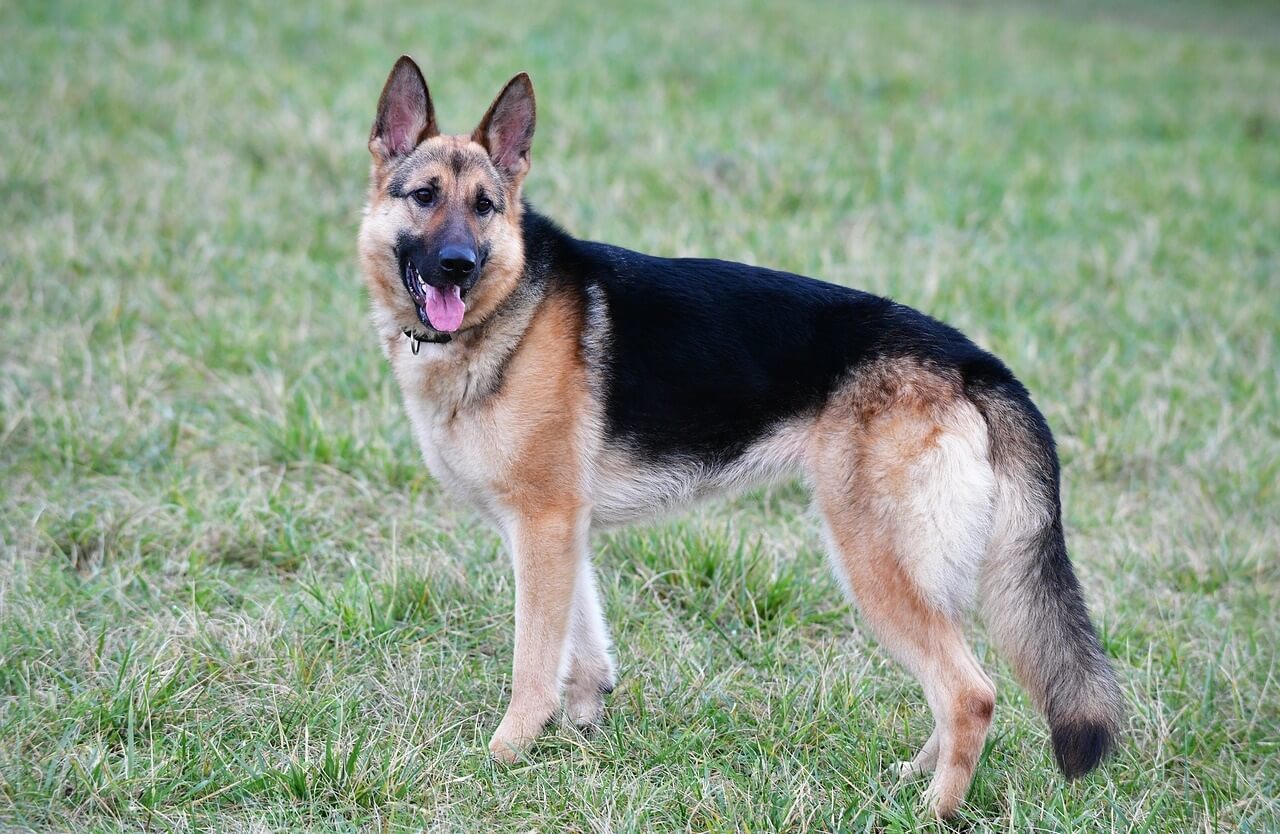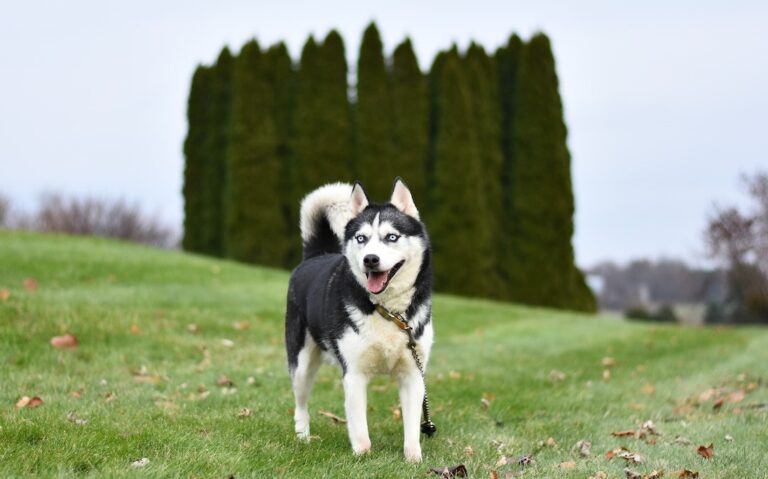German Shepherd
German Shepherd are renowned for their intelligence, loyalty, and versatility. Originating from Germany, these remarkable dogs have earned a special place in the hearts of dog enthusiasts worldwide.
In this, we will explore the key characteristics, history and care requirements of German Shepherds, shedding light on why they are so beloved.
| Origin | Germany |
| Height Male | 60-65 cm (24-26 inches) |
| Height Female | 55-60 cm (22-24 inches) |
| Life Expectancy | 10-12 years |
| Coat | Double coat, medium to long |
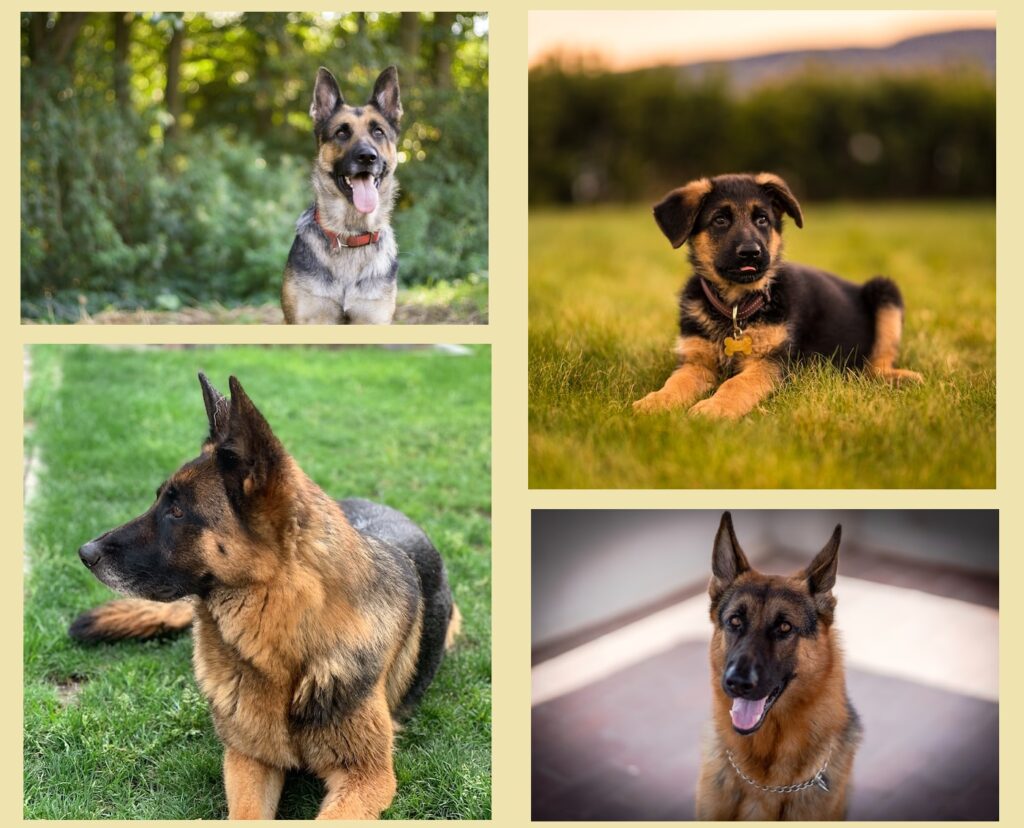
History and Origins
German Shepherds were developed in the late 19th century by a German cavalry officer named Captain Max von Stephanitz. He aimed to create a versatile working dog with exceptional intelligence and physical capabilities. The breed was initially used for herding sheep, but its skills and adaptability soon found applications in various fields such as police work, search and rescue and even as guide dogs for the visually impaired.
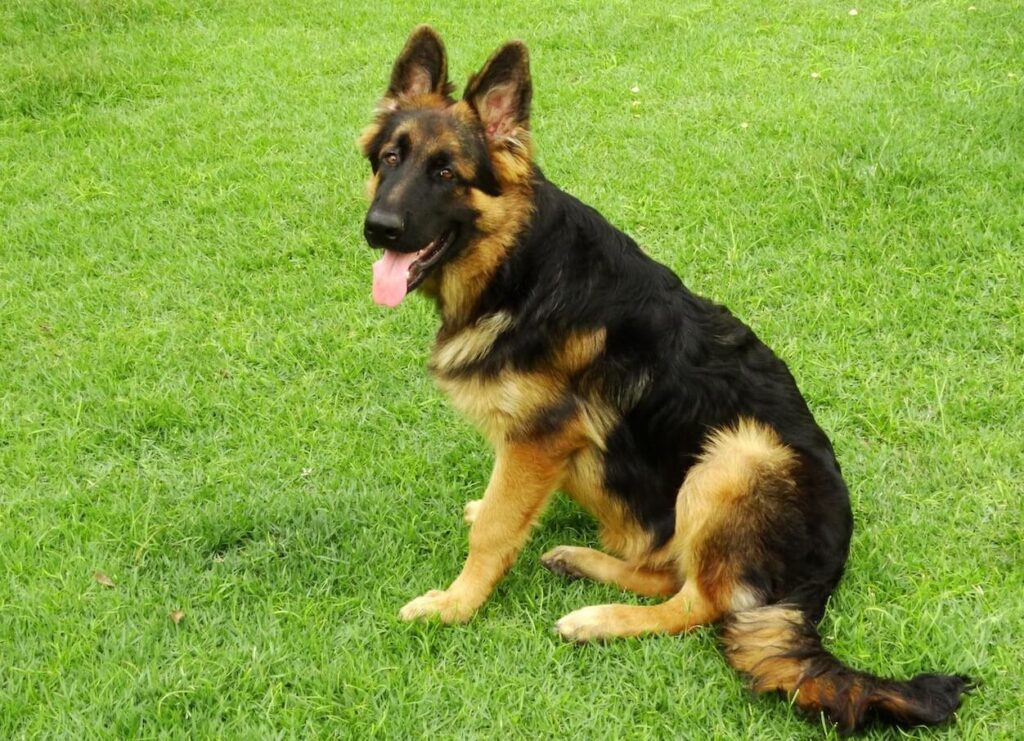
Physical Traits of German Shepherd
German Shepherds have a distinctive appearance. They are medium to large-sized dogs with a well-muscled body and a sturdy build. Their face is intelligent and alert, with dark, almond-shaped eyes and erect ears. The breed’s most recognizable feature is their thick double coat, which comes in various color combinations including black and tan, black and red, or solid black.

Temperament and Personality
German Shepherds are known for their loyalty and protective nature towards their families. They form strong bonds with their owners and are eager to please. These dogs are intelligent and quick learners, making them highly trainable and suitable for a range of activities. While they can be reserved with strangers, they are generally well-mannered and gentle with children when properly socialized.

Exercise and Mental Stimulation
German Shepherds are active dogs that require regular exercise to keep them physically and mentally stimulated. Daily walks, play sessions and engaging activities such as obedience training or agility courses are essential to prevent boredom and maintain their overall well-being. Without sufficient exercise, they may develop behavioral problems due to pent-up energy.
Training and Socialization
Training a German Shepherd should start early to establish boundaries and teach them proper behavior. Positive reinforcement methods, such as treats and praise, work best with this breed. German Shepherds thrive when given a job to do, so involving them in activities that challenge their intellect and instincts is highly recommended. Socialization from a young age is crucial to ensure they grow up to be well-adjusted and confident dogs.

German Shepherd Health and Care
German Shepherds are generally a healthy breed, but like all dogs, they are susceptible to certain health issues. Common conditions include hip and elbow dysplasia, degenerative myelopathy and certain types of allergies. Regular veterinary check-ups, a balanced diet and proper grooming, including brushing their coat and cleaning their ears, can help maintain their well-being.
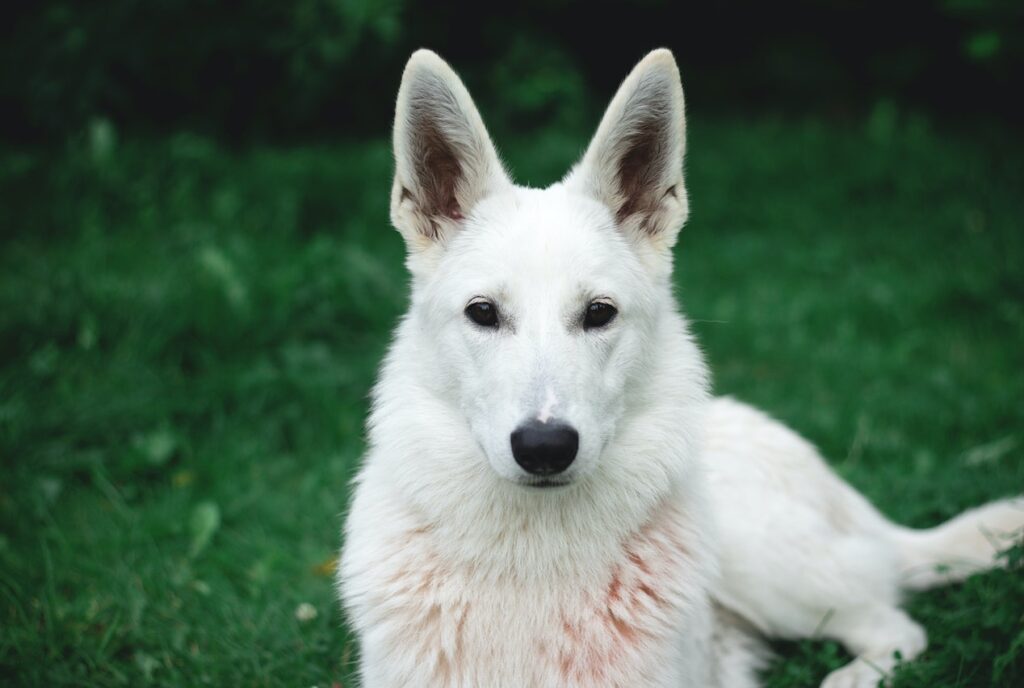
German Shepherds Dietary Requirements
German Shepherds do not have any specific dietary requirements beyond a well-balanced and nutritious diet. It’s essential to provide them with high-quality dog food that meets their nutritional needs. Factors such as age, activity level and overall health should be considered when determining the appropriate portion sizes and feeding schedule. It’s always a good idea to consult with a veterinarian for specific dietary recommendations.
Royal Premia Dog Food for German Shepherd
-
Basic Adult Dry Dog Food 15kg All Medium and Large Breeds
-
Supreme Dry Dog and Puppy Food 15kg All Medium and Large Breeds
Breed Overview
German Shepherds are remarkable dogs that embody loyalty, intelligence, and versatility. Their rich history and impressive qualities have made them popular as both working dogs and beloved family pets.
With the right care, training and socialization, German Shepherds can bring joy and companionship to their owners for many years.
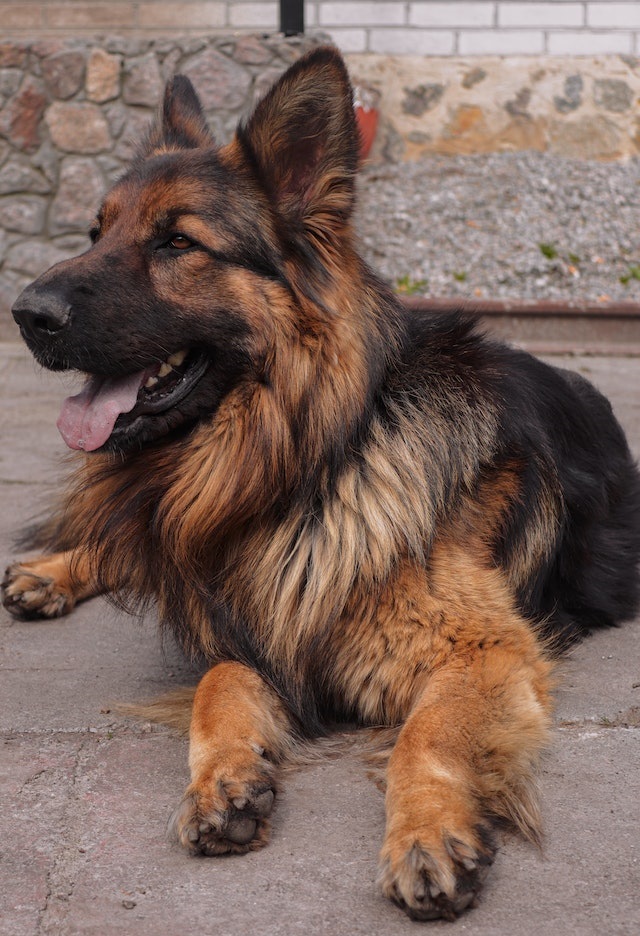
German Shepherd Frequently Asked Questions
Are German Shepherds aggressive?
German Shepherds, when properly bred, trained, and socialized, are not inherently aggressive. However, like any dog breed, individual temperaments can vary. Early socialization and training are crucial to ensure that German Shepherds develop into well-behaved, confident and non-aggressive dogs. Responsible ownership and positive reinforcement training methods play a significant role in shaping their behavior.
Can German Shepherds live in hot climates?
German Shepherds can adapt to hot climates, but precautions should be taken to ensure their well-being. They have a dense double coat that provides insulation, making them better suited for cooler climates. In hot weather, it’s important to provide shade, plenty of fresh water and avoid excessive exercise during the hottest times of the day. Additionally, regular grooming to remove loose hair and prevent overheating is essential.
Are German Shepherds good guard dogs?
German Shepherds have a natural protective instinct and are often used as guard dogs. They are alert, courageous and highly trainable, making them well-suited for guarding roles. However, proper training and socialization are crucial to ensure they distinguish between real threats and everyday situations. Responsible ownership is key to ensure they are well-adjusted and balanced in their protective behaviors.
Can German Shepherds be left alone for long periods?
German Shepherds are social animals and require human companionship. Leaving them alone for extended periods can lead to boredom, anxiety, and behavioral problems. If you need to leave your German Shepherd alone for long periods, it’s important to provide them with mental stimulation, toys and interactive puzzles to keep them occupied. Consider hiring a dog walker or enrolling them in doggy daycare to break up the time they spend alone.
How much do German Shepherds weigh?
The weight of a German Shepherd can vary depending on various factors such as genetics, sex and overall health. On average, male German Shepherds typically weigh between 65-90 pounds (30-41 kg), while females generally weigh between 50-70 pounds (23-32 kg).
Are German Shepherds good with other pets?
German Shepherds can get along well with other pets, including cats and other dogs, if they are properly socialized from a young age. Early introductions and positive experiences with other animals can help them develop positive relationships. However, it’s important to monitor their interactions and provide appropriate training and guidance to ensure everyone’s safety and harmony within the household.
Can German Shepherds be aggressive towards strangers?
German Shepherds can be wary of strangers due to their protective nature, but they should not be aggressive when properly socialized and trained. Early socialization, exposure to various people, and positive reinforcement training can help German Shepherds develop good manners and become well-behaved around strangers.

